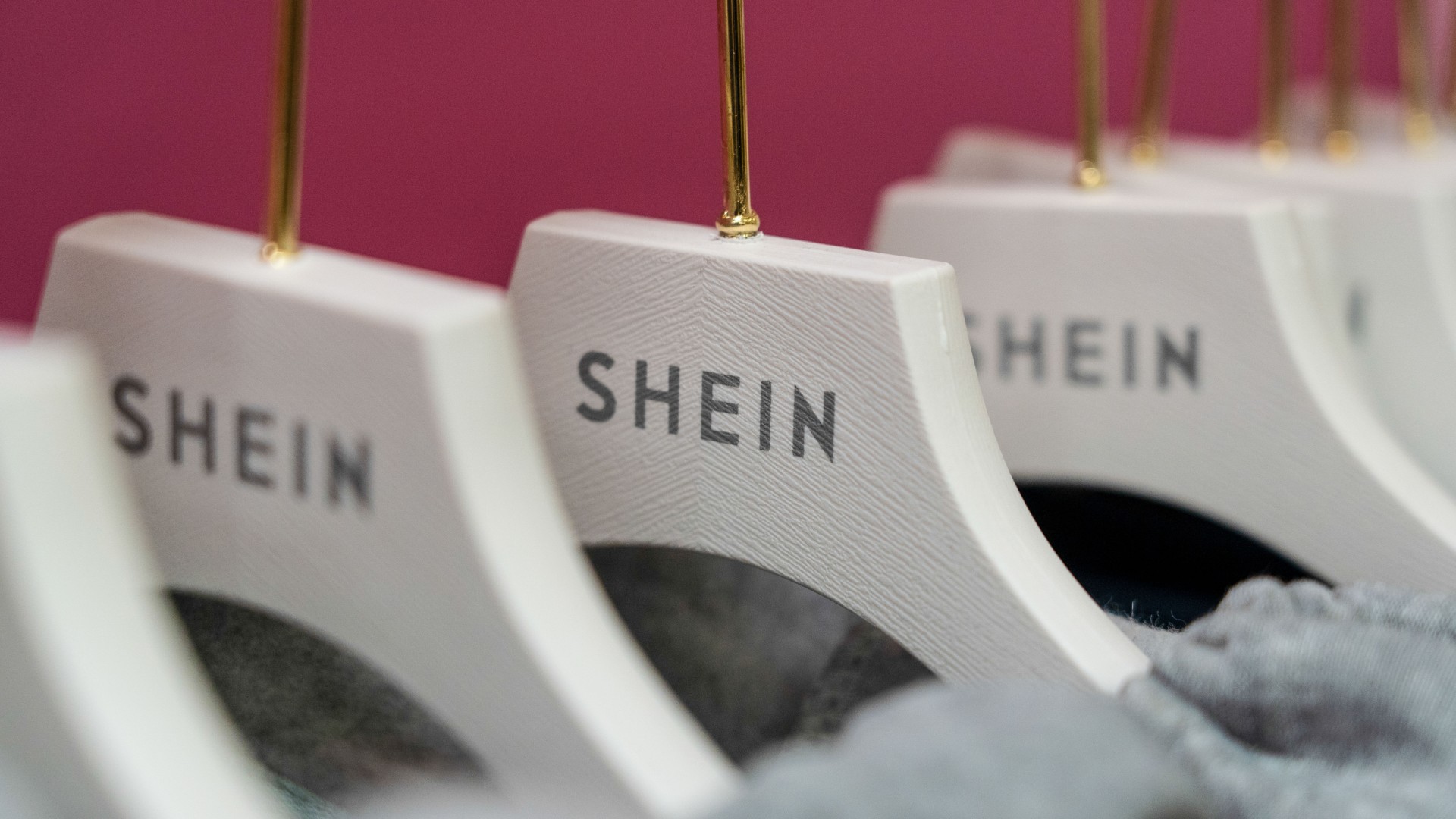How Shein bucked the trend for sustainable fashion
Ethical concerns outweighed by ultra-fast, cheap and disposable clothes, as Chinese retailer prepares for £50bn London listing

A free daily email with the biggest news stories of the day – and the best features from TheWeek.com
You are now subscribed
Your newsletter sign-up was successful
Shein is set for a £50 billion stock market flotation, making it one of the biggest in the history of the London Stock Exchange.
Both the government and Labour have held talks with the online fashion brand, which was set up in Nanjing in China but is now based in Singapore, to try to persuade it to float in the UK amid intense interest from New York and Paris.
The company could file for an initial public offering (IPO) as soon as this week, said Bloomberg UK. And doing so in the UK would be a "much-needed milestone for ministers and City chiefs who have been battling to restore London's status as a global listing venue after a series of blows", said The Times.
The Week
Escape your echo chamber. Get the facts behind the news, plus analysis from multiple perspectives.

Sign up for The Week's Free Newsletters
From our morning news briefing to a weekly Good News Newsletter, get the best of The Week delivered directly to your inbox.
From our morning news briefing to a weekly Good News Newsletter, get the best of The Week delivered directly to your inbox.
The business model
Launched in 2008, the "ultra-fast" fashion retailer has seen its popularity explode over the past decade. It has expanded rapidly around the world while buying up many of its rivals. For Gen Z shoppers – those under 30 – Shein is now "the hottest ticket in town", said Retail Gazette, after it officially became the largest fashion retailer in the world in 2022. That year, it reported £18.9 billion in revenue.
The Shein business model revolves around "low-cost, throwaway items that are constantly being marked down," said The Independent.
With roughly 10,000 new products released per day, its "entire premise is based on fashion being disposable, the implication being: here, buy these very cheap and often poorly made clothes, wear them once, then buy something else. And as wild as that may seem to some, it's a modus operandi that is clearly working."
Young shoppers in particular have been "enticed away from rivals such as Boohoo and Asos thanks to ultra-cheap prices" that include less than £3 for a top or £4 for a dress, said This Is Money.
A free daily email with the biggest news stories of the day – and the best features from TheWeek.com
"First and foremost, Shein is a tech company not a fashion brand," said fair fashion campaigner Venetia La Manna. "It uses highly advanced SEO, which means it can quickly react to trends and churn [clothes] out quickly."
It has pioneered the use of so-called "haul" videos on platforms such as TikTok and Instagram, where content creators and brand influencers buy masses of clothing and try them on for their fans. At the same time, Glossy magazine reported on how Shein has "seized the opportunity to allow many young designers – who lack accessibility into the industry – to sell their designs on its e-commerce site and take part in dedicated programs, TV shows and catwalks".
Fast fashion vs. sustainability
What makes Shein's success all the more remarkable is that it has come in the face of intense scrutiny over its working conditions, human rights record and carbon footprint amid a wider trend towards sustainable fashion.
The retailer has launched a roadmap to "accelerate" its "journey towards a sustainable future accessible to all". Last month, it announced its "first-ever entirely deadstock collection" featuring new pieces crafted out of leftover fabrics.
"This is the start of a new sustainable era for the label's sourcing practices," said Bustle, part of a drive "to cut their carbon footprint by at least 25% by 2030".
The problem, said Drew Afualo, a TikTok influencer with more than six million followers who has faced online backlash for partnering with Shein, is that "not everyone can afford to shop sustainably".
"Sustainable fashion is a privilege," wrote Afualo, hitting upon a truth that for many the cost and speed offered by the brand outweighs any ethical or moral concerns.
"Shein is soaring in popularity because people still refuse to grasp that cheap clothing comes at a very steep price to other humans and our planet," said Aja Barber, author of "Consumed". "It is now the biggest ultra-fast fashion retailer in the world and it's all about taking market share. And it's a scary vision we're hurtling towards."
-
 What is the endgame in the DHS shutdown?
What is the endgame in the DHS shutdown?Today’s Big Question Democrats want to rein in ICE’s immigration crackdown
-
 ‘Poor time management isn’t just an inconvenience’
‘Poor time management isn’t just an inconvenience’Instant Opinion Opinion, comment and editorials of the day
-
 Bad Bunny’s Super Bowl: A win for unity
Bad Bunny’s Super Bowl: A win for unityFeature The global superstar's halftime show was a celebration for everyone to enjoy
-
 Mail incoming: 9 well-made products to jazz up your letters and cards
Mail incoming: 9 well-made products to jazz up your letters and cardsThe Week Recommends Get the write stuff
-
 Best UK fashion exhibitions in 2026
Best UK fashion exhibitions in 2026The Week Recommends See much-loved and intriguing items from designers and style icons right where they belong: on display
-
 Spoil those special someones with these charming Valentine’s Day gifts
Spoil those special someones with these charming Valentine’s Day giftsThe Week Recommends Make them ooh and aah
-
 Down with Uno, up with this exciting collection of one-of-a-kind travel games
Down with Uno, up with this exciting collection of one-of-a-kind travel gamesThe Week Recommends Game on!
-
 The best art exhibitions to book in 2026
The best art exhibitions to book in 2026The Week Recommends Our pick of the shows to see across the UK, from epoch-defining embroidery to fresh looks at under-appreciated artists
-
 More than a zipper: Young Black men embrace the ‘quarter-zip movement’
More than a zipper: Young Black men embrace the ‘quarter-zip movement’The Explainer More than a zipper: Young Black men embrace the ‘quarter-zip movement‘
-
 11 extra-special holiday gifts for everyone on your list
11 extra-special holiday gifts for everyone on your listThe Week Recommends Jingle their bells with the right present
-
 May your loved ones eat, drink and be merry with these 9 edible Christmas gifts
May your loved ones eat, drink and be merry with these 9 edible Christmas giftsThe Week Recommends Let them eat babka (and cheese and licorice)